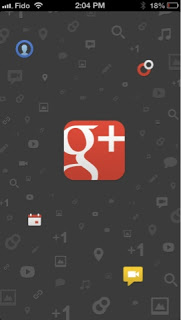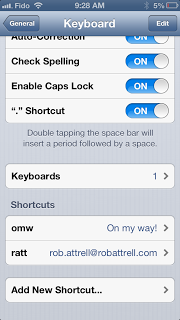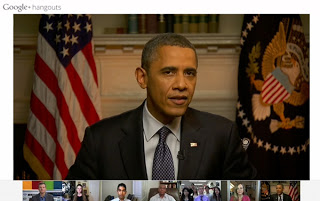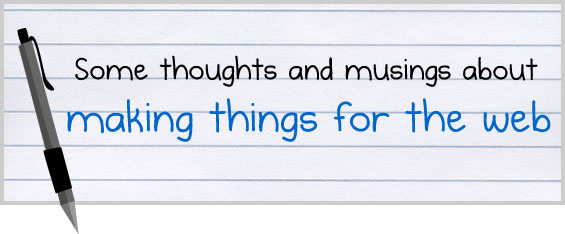 |
| ‘Tis the season! |
Hey again everybody, it seems that the Christmas season is upon us again, which of course means that it is a great time to reflect on the important ideas of peace, love and harmony, and to spend time with friends and family. It is also a great opportunity to reflect on the past year and gaze into the next one, which is what I intend to do today.
2012 was a very odd year for me overall, sort of a transition year from my schooling into real life. It has been a full year now since I defended my masters degree, and though objectively I am not much further along than the day I finished my degree, I have grown a tremendous amount in the last 12 months. Between the six months I spent working in a retail electronics store, and the 6 months I spent primarily job hunting and unemployed, I gained a ton of life experience and came to have a better understanding of what I want to do with my life, as well as what I want from my future.
There are also two very important lessons I have learned in the last year that I would really like to express here, in the hope that perhaps somebody reading this can gain something from hearing it.
The first lesson, and easily the most important to me, is the understanding that every person on Earth shares some manner of similarities with every single other person, and that is what makes us human. More importantly though, each and every person also has something or things that make them totally different from any other person they will ever meet. As I grow fully into adulthood, this really comes sharply into focus. This is the reason that life is a wonderful, beautiful thing, but it is also the reason that nothing will ever be perfect. For every intellectual, there is an idiot. For each angel, there is a Westboro Baptist.
Every single person on Earth has weaknesses, but most have strengths that outshine any inadequacies. In the same way that people can join together and provide assistance to hurricane victims and their families, there will always be politicians and lobbyists clamouring to defend terrible, antiquated legislation to make a quick buck or gain power and influence. We live in an ever-changing world where absolutely nothing can be known for certain, and knowing and believing that is a very humbling experience. All anybody can do is their individual best to find happiness, while passing that happiness along at any opportunity. If you are currently being presented with a chance to be happy, but worrying about possible negative impacts or fallout that decision may have, you have not fully grasped the idea that the world we live in is a truly random place, wherein incredible and horrible things happen all the time in equal measure.
It is my strong personal conviction that you should always take a chance on love, whatever that may entail. If there is someone in your life that you care about, tell them today before they disappear. If you are passionate about anything in life, you need to attack it with every fibre of your being, or risk losing the chance to be truly happy. If you find yourself worrying about making the wrong decision about something you feel you truly love, then what you should really consider is whether that love is real. The decision to withhold anything from yourself on the basis that somebody might make you feel guilty about it later is just an awful way to live your life. Unfortunately for 85% of the worlds population, guilt-based decision making rules our modern world.
There are certain obvious circumstances, such as those regarding illegality and massive financial endeavour, wherein a desire to do something does not necessarily mean action is warranted, but in the vast majority of situations, moral code dictates that nobody should have the power to hold guilt over you.
To close out the details of this first lesson, it has recently become evident to me that living in modern human society, if you truly love something, you can wait your whole life for something to be perfect, or you can spend your life enjoying every day, bathing in the pool of randomness, and gaining a better understanding of what you truly want. Yes, this is also a recipe for making mistakes, but forgiveness of those small mistakes while attempting to achieve happiness should be rewarded, and not punished. Seize the day, as though every one after Dec. 21, 2012 is just a bonus.
My second lesson, which in some regards is just as, or even more, important, is that everybody has a place in this world. Though I have not yet found my ideal niche, I know there is a nest out there for me that is a perfect fit, and that an impassioned search will yield results.
There are always going to be two kinds of people in the world, those who help, and those who create. A select few people will certainly be both in equal parts, and people who help will definitely create as well, and vice versa. In order to be successful in life, you must either find something you can do that can help out society, or you can create new things that you feel are important. What matters most in either of those domains is the idea of passion.
In my search for a career in a modern world, I have come to the realization that the simple matter of having a university education does not, and should not, qualify you for anything. To actually spend your life doing something worthwhile, you must apply concepts learned throughout your schooling, as well as your life, to something you care deeply about. In trying to make myself appealing to potential employers, I began my quest by simply listing everything I have accomplished up until now. While this is by no means a fruitless enterprise, nobody is ever going to hire a graduate based on the fact that they graduated. Getting a job is much more about timing than it is about qualifications. If you make a good impression on someone, and they are looking to hire right now, you can get that job even if you are lacking experience.
This goes back to the fact that all humans are the same, and here’s an example:
If I walk around downtown Ottawa, and I hand out business cards to strangers, telling people that I have a degree in chemistry and referring them to my website, does that person have any inclination to offer me anything? Likewise, if you received an unsolicited phone call from a telemarketer offering you a product you hadn’t heard of and telling you it is great, would you accept the offer?
The answer, in both cases, is probably no. There is an off-chance you run into a chemical researcher who happens to be looking for a research associate, just like there is a chance you own a dry log cabin in the woods and you are offered fire insurance. The odds of finding someone who needs your particular skills get fewer and further between the more education you have. At a certain point, you must demonstrate how you can fill a need in that persons world, and simultaneously show them that you are passionate about what they need you to do.
For me personally, the most important part of this lesson for me was the fact that I need to create more. I help people constantly, and in some cases that help isn’t even asked of me, or desired. So I have decided to focus more on creation. In writing this blog (over the last 6 months or so especially), I have come to realize that it doesn’t even matter what you create, so long as you are doing so passionately. If you create something you care about, it will benefit you in the long run. If somebody recognizes the importance of your creation, that is even better, but you have to be doing it for yourself as well if you want it to truly mean something.
I have a passion for writing, putting words into cohesive (sometimes) thoughts really makes me feel like I have accomplished something. I also have a passion for other more theatrical creative pursuits, but these are not developed in the way that writing has been for me. I have no evidence to date that anything will come of this, but I will certainly continue to do it as long and as often as I feel so inclined.
I am also going to do my best to make myself appealing to those people who preceded me in entering the adult world, so that one day I can join them in considering myself a true grown-up.
So, those are the lessons I have learned the last 365.25 days or so, I really hope you were able to take something from it, I know I learned a lot in writing all of that out. I sincerely hope, for those of you who are spending time with those you care about right now and over the coming days, that you have told them recently just how special they are to you, and that you will continue to take every opportunity to do so.
tl;dr Love unashamedly and pursue your passions, and you will be truly happy!
Merry Christmas and a happy holiday,
Love,
Rob


























